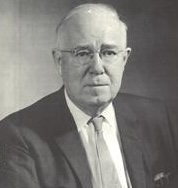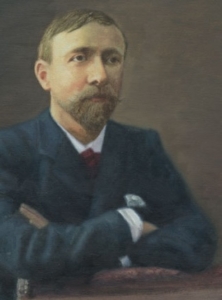Holy Eucharist Rite II at 10:30 a.m. with the St. John’s Adult Choir, sermon by The Rev’d Margie Baker.
Worship at Home:
Click here: Service Bulletin
Service Music:
Voluntary Prelude on Rhosymedre Ralph Vaughan Williams (1872-1958)
Processional Hymn 583 O holy city, seen of John Morning Song
Song of Praise S236 Glory to you John Rutter (b. 1945)
Sequence Hymn 709 O God of Bethel Dundee
Offertory Anthem Eternal light Leo Sowerby (1895-1968)
Words: Alcuin Albinus Flaccus (c. 735-804)
Eternal Light, shine into our hearts,
Eternal Goodness, deliver us from evil,
Eternal Power, be our support,
Eternal Wisdom, scatter the darkness of our ignorance,
Eternal Pity, have mercy upon us;
that with all our heart and mind and soul and strength
we may seek thy face
and be brought by thy infinite mercy to thy holy presence;
through Jesus Christ our Lord.
 Leo Sowerby began to compose at the age of 10. His interest in the organ began to teach himself at the age of 15. He studied and taught at the American Conservatory of Music, received the 1946 Pulitzer Prize for Music for his cantata, the Canticle of the Sun, and was the first composer to receive the Rome Prize from the American Academy. His substantial output includes over 500 works in every genre but opera and ballet. After his retirement as organist and choirmaster from St. James Episcopal Cathedral in Chicago, he was called to Washington National Cathedral to become the founding director of the College of Church Musicians, a position he held until his death.
Leo Sowerby began to compose at the age of 10. His interest in the organ began to teach himself at the age of 15. He studied and taught at the American Conservatory of Music, received the 1946 Pulitzer Prize for Music for his cantata, the Canticle of the Sun, and was the first composer to receive the Rome Prize from the American Academy. His substantial output includes over 500 works in every genre but opera and ballet. After his retirement as organist and choirmaster from St. James Episcopal Cathedral in Chicago, he was called to Washington National Cathedral to become the founding director of the College of Church Musicians, a position he held until his death.
Sanctus S124 David Hurd (b. 1950)
Fraction Anthem S154 Christ our Passover David Hurd (b. 1950)
Communion Motet Ave verum corpus Wolfgang Amadeus Mozart (1756-1791)
Ave verum corpus, natum de Maria Virgine,
vere passum, immolatum in cruce pro homine,
cuius latus perforatum fluxit aqua et sanguine:
Esto nobis praegustatum in mortis examine.
Hail, true body, born of the Virgin Mary,
which having truly suffered, was sacrificed on the cross for mankind,
whose pierced side flowed with water and blood:
May it be for us a taste of things to come in the trial of death.
Communion Hymn 609 Where cross the crowded ways of life Gardiner
Hymn in Procession 546 Awake, my soul, stretch every nerve Siroë
Voluntary Prélude-Toccata, op. 29, no. 1 Gabriel Pièrne (1863-1937)
 French composer and organist Gabriel Pierné studied at the Paris Conservatoire, gaining first prizes for solfège, piano, organ, counterpoint and fugue. He won the French Prix de Rome in 1882, with his cantata Edith. His teachers included César Franck (for the organ) and Jules Massenet (for composition). He succeeded César Franck as organist at Sainte-Clotilde Basilica in Paris from 1890 to 1898. A member of the Académie des Beaux Arts in 1924, Pierné gave first performances of most of the major works of his contemporaries: Saint-Saëns, Debussy, Roussel, Ravel, Schmitt, Enesco, Stravinsky. An eminent conductor and dedicated composer, Pierné wrote in almost all genres.
French composer and organist Gabriel Pierné studied at the Paris Conservatoire, gaining first prizes for solfège, piano, organ, counterpoint and fugue. He won the French Prix de Rome in 1882, with his cantata Edith. His teachers included César Franck (for the organ) and Jules Massenet (for composition). He succeeded César Franck as organist at Sainte-Clotilde Basilica in Paris from 1890 to 1898. A member of the Académie des Beaux Arts in 1924, Pierné gave first performances of most of the major works of his contemporaries: Saint-Saëns, Debussy, Roussel, Ravel, Schmitt, Enesco, Stravinsky. An eminent conductor and dedicated composer, Pierné wrote in almost all genres.
